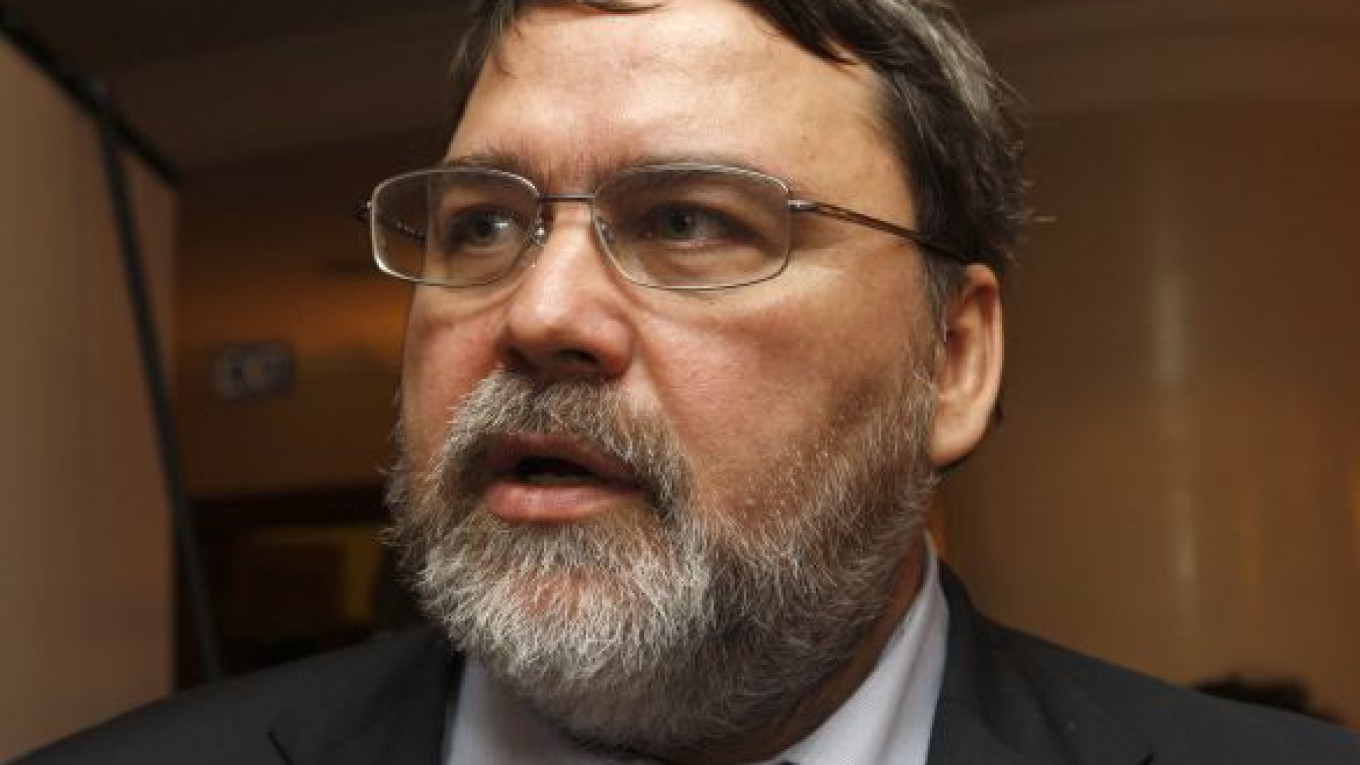A new law that would allow for criminal charges to be brought against those suspected of collusion went into effect Friday, but the rule is more of an incentive than a punishment, said Igor Artemyev, head of the Federal Anti-Monopoly Service.
“In this country, if you don’t include some infringement in the Criminal Code, no one will even bat an eyelid,” he said Friday. “So this is a necessity, but we will be cautious in implementing this option. I wouldn’t be surprised if you don’t see a single criminal anti-monopoly case in 2010.”
The law provides for up to seven years of imprisonment and a fine of up to 1 million rubles ($34,000) for those convicted of collusion. Previously, monopolistic activity was regulated only by the Civil Code and the violators were only financially liable for breaking the laws.
After the adoption of the so-called second package of anti-monopoly measures in August, the anti-monopoly service became one of the main government bodies focused on curbing corruption, and its powers were significantly expanded.
The anti-monopoly watchdog has made its mark by going after the country’s big oil firms for illegal price setting. It levied a 5.28 billion ruble fine on Rosneft last week, and Artemyev said the service would announce the punishment for LUKoil on Nov. 5, adding that the fine would be “really big.”
“[LUKoil] isn’t providing us with information, they’re blocking the investigation. That shouldn’t happen. Their fine will be bigger because of this,” he said.
The watchdog began a concerted effort to bring down prices for refined oil products, including gasoline and jet fuel, after Prime Minister Vladimir Putin warned its leaders in July 2008 to “wake up” or find new work. Since then, it has initiated about 200 cases against oil companies, fining major market players billions of rubles.
“Today, because the oil business is opaque, it isn’t really clear how the oil companies manage gasoline pricing,” he said. “You wouldn’t find out how much one ton of oil costs, how much the transportation and the gasoline is. So separating oil business from gasoline would be really useful.”
But fighting collusion isn’t an easy task, because price fixing in Russia is a national pastime, he said.
“Imagine, two or three businessmen sitting in a banya and discussing prices. Immediately after their weekly banya trip, we see the results of their activities,” he said. “It is a popular tradition, and it is sometimes really hard to explain to people here why exactly they should go to jail.”
A key measure included in the second anti-monopoly package is the “three-strikes principle,” Artemyev said. The principle enforces a prison term if an executive breaks anti-monopoly laws three times within three years.
“You’re unlikely to find a manager or official who would sign the documents breaking anti-monopoly laws three times in three years knowing he will be facing imprisonment,” he said. “But if a person breaks the law three times, I think he should ‘have some rest’ [in jail].”
Artemyev noted, however, that the court would “unlikely issue some other verdict than a suspended sentence” on those cases.
Despite the tough line on business, Artemyev assured businessmen that the service’s new powers to file criminal charges would not put businesses at risk.
“We are not going to make life a nightmare for businesses,” he said, using a phrase that became famous last year when President Dmitry Medvedev used it to describe hassles that the government causes for small and medium-sized businesses.
Some of the biggest offenders when it comes to noncompetitive practices, however, are within the government itself, he said.
“Every time we started an investigation against some governor dealing with state contracts, they called me and asked me to fire somebody from my staff,” he said.
“Now it looks like they’ve gotten used to the fact that we don’t fire people for doing their work, and they don’t call me that often.”
A Message from The Moscow Times:
Dear readers,
We are facing unprecedented challenges. Russia's Prosecutor General's Office has designated The Moscow Times as an "undesirable" organization, criminalizing our work and putting our staff at risk of prosecution. This follows our earlier unjust labeling as a "foreign agent."
These actions are direct attempts to silence independent journalism in Russia. The authorities claim our work "discredits the decisions of the Russian leadership." We see things differently: we strive to provide accurate, unbiased reporting on Russia.
We, the journalists of The Moscow Times, refuse to be silenced. But to continue our work, we need your help.
Your support, no matter how small, makes a world of difference. If you can, please support us monthly starting from just $2. It's quick to set up, and every contribution makes a significant impact.
By supporting The Moscow Times, you're defending open, independent journalism in the face of repression. Thank you for standing with us.
Remind me later.


